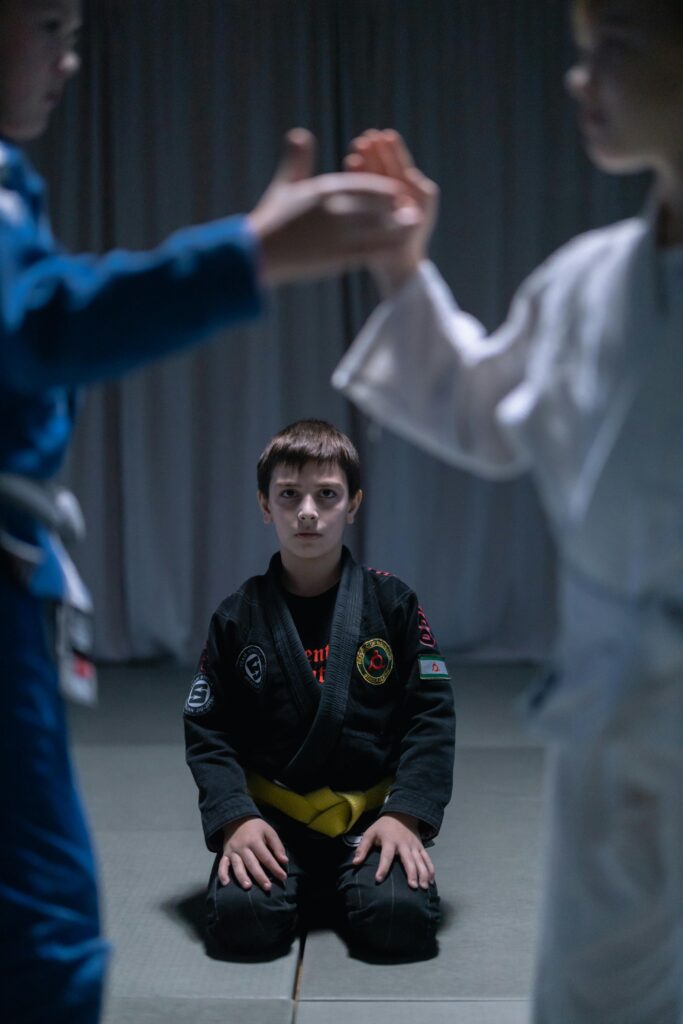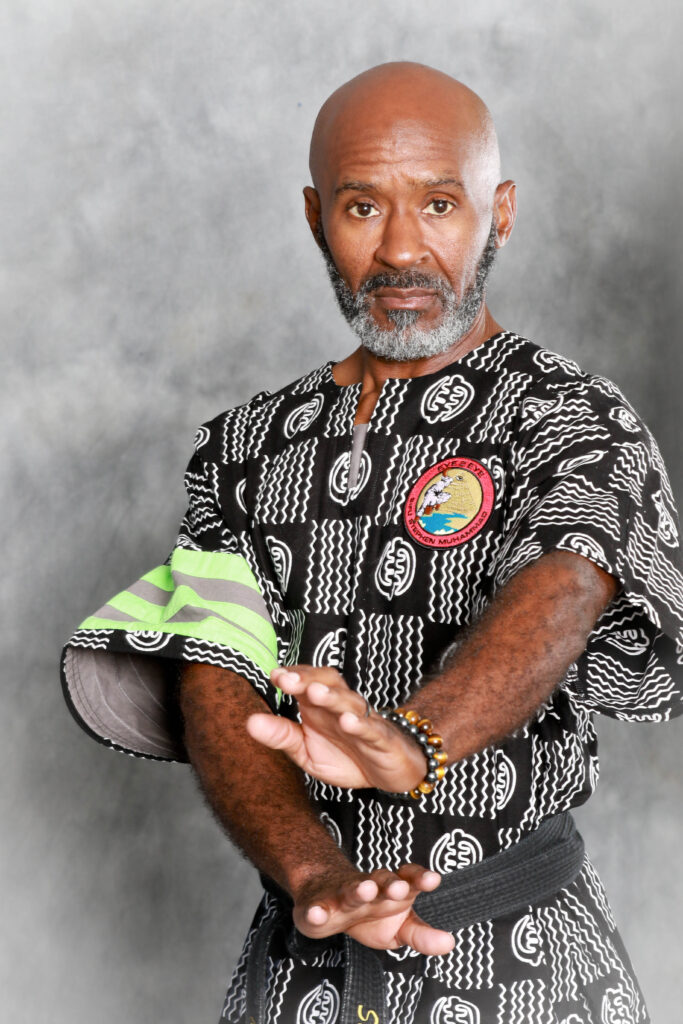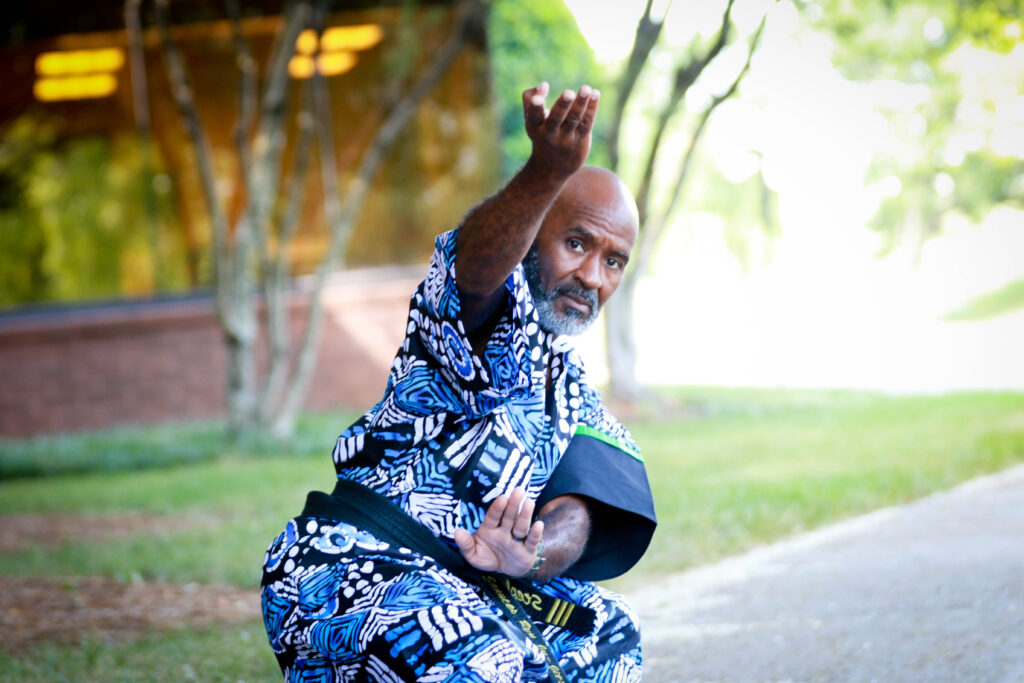Martial arts is more than just throwing punches or learning to block an attack. It’s a journey of self-discovery that teaches emotional intelligence, resilience, and compassion.
When you train in martial arts, you learn to control your body and, more importantly, your emotions. You don’t just become a stronger fighter—you become a stronger person.
In this article, I want to share how martial arts can help you build emotional intelligence, making you more resilient and compassionate, both on and off the mat.
The Connection Between Martial Arts and Emotional Intelligence
Martial arts has a unique way of teaching emotional intelligence. You’re not just learning to defend yourself physically; you’re also learning how to manage your emotions in high-pressure situations.
In every training session, you practice staying calm, focused, and in control—skills that directly translate to emotional intelligence (EQ). This is what makes martial arts such a powerful tool for personal growth.
What is Emotional Intelligence?
At its core, emotional intelligence is about understanding and managing your emotions while also recognizing and influencing the emotions of others.
In martial arts, whether you’re practicing alone or with a partner, you’re constantly paying attention to how you feel.
You might be frustrated when you can’t get a technique right, or anxious when sparring with someone more experienced. But over time, you learn to control these emotions, responding with calmness and clarity instead of panic or frustration.
Why EQ is Important in Self-Defense
When it comes to self-defense, emotional intelligence is just as important as physical skill.
Imagine being in a situation where someone is threatening you. If fear takes over, it’s easy to make mistakes or freeze up.
But if you’ve learned how to stay calm under pressure, you can assess the situation, make smarter decisions, and respond effectively.
This ability to manage your emotions could make all the difference in a self-defense situation.
Building Resilience Through Self-Defense Training
Martial arts training builds resilience in ways you might not expect. It’s not just about toughening up physically, but also developing mental and emotional strength.
Every time you practice, you’re learning how to push through challenges—whether it’s a difficult technique or a tough sparring session.
This resilience sticks with you, helping you face other challenges in life with the same determination.
Mental Fortitude in Martial Arts
Mental toughness is one of the most valuable things you gain from martial arts. No matter how skilled you are, there will always be moments when you feel frustrated, tired, or overwhelmed.
But martial arts teaches you to push through those feelings, keep going, and improve. This kind of resilience builds a mindset that’s not just useful in martial arts but in everyday life as well.
Overcoming Physical and Emotional Barriers
Training in martial arts often requires you to face both physical and emotional barriers. There will be times when your body wants to quit, but your mind has to keep you going.
And there are times when you might doubt yourself—wondering if you’re good enough or strong enough. But martial arts helps you break through those barriers, teaching you that you’re capable of more than you think, both physically and emotionally.
Developing a Growth Mindset
In martial arts, you quickly learn that perfection isn’t the goal—progress is. Every time you step onto the mat, you’re improving, even if it doesn’t feel like it.
This “growth mindset” encourages you to embrace challenges and setbacks as part of the learning process.
Over time, you start to apply this mindset to other areas of your life, making you more resilient and better equipped to handle whatever comes your way.
Cultivating Compassion Through Martial Arts
Martial arts also fosters a deep sense of compassion. At first, this might seem surprising—how can learning to fight make you more compassionate?
But the truth is, martial arts teaches you to be aware of others, to respect them, and to help them grow.
The Role of Empathy in Conflict Resolution
One of the key lessons in martial arts is understanding your opponent. You quickly learn that your training partner isn’t just someone to “beat” in a sparring match—they’re someone you need to respect and understand.
This builds empathy, a key component of emotional intelligence. When you can understand what the other person is feeling, you’re better equipped to resolve conflicts without escalating them into physical altercations.
Cooperation and Respect in Training
In martial arts, cooperation is essential. Whether you’re sparring or practicing techniques, you need to work with your partner, not against them. This mutual respect is a cornerstone of martial arts training.
Over time, this respect extends beyond the dojo, influencing how you interact with people in everyday life. You become more patient, more understanding, and more compassionate.
Helping Others Through Teaching and Mentoring
As you advance in martial arts, you often take on a role as a mentor to newer students. Teaching others how to fight also teaches you humility, patience, and compassion.
You start to realize that martial arts isn’t just about improving yourself—it’s about helping others improve too. This sense of responsibility and care for others is one of the most rewarding aspects of martial arts.
Emotional Regulation Through Martial Arts Techniques
Martial arts is all about control—controlling your body, your mind, and your emotions. The techniques you learn don’t just help you defend yourself physically; they also help you regulate your emotions in stressful situations.
Breath Control and Its Impact on Emotions
Breath control is one of the first things you learn in martial arts. Deep, controlled breathing calms the mind and keeps you focused.
In a high-pressure situation, whether it’s in a sparring match or a real-life confrontation, controlling your breathing helps you manage your emotions.
It’s a simple technique, but it’s incredibly effective for staying calm under pressure.
Mindfulness in Martial Arts
Martial arts encourages mindfulness—being fully present in the moment. When you’re practicing, you’re focused on your body’s movements and your surroundings.
This mindfulness helps you control your emotional responses, both on and off the mat.
Whether you’re dealing with a stressful day at work or an argument with a friend, the mindfulness you develop in martial arts helps you stay calm and grounded.
Channeling Aggression Into Focused Energy
Martial arts teaches you how to channel negative emotions like frustration or anger into something positive.
Instead of letting those emotions control you, martial arts shows you how to use them to fuel your focus and determination.
This is especially useful in self-defense, where staying focused can be the key to protecting yourself effectively.
Enhancing Confidence Through Self-Defense
Confidence is one of the most powerful benefits of martial arts. When you know you can defend yourself, you carry yourself with a quiet assurance that affects every part of your life.
This confidence isn’t just about physical strength—it’s about knowing you have the mental and emotional tools to handle whatever comes your way.
The Confidence of Knowing You Can Defend Yourself
There’s a peace of mind that comes with knowing you can protect yourself if needed. Whether you’re walking home at night or handling a tense situation, the confidence you gain from martial arts allows you to stay calm and in control.
This self-assurance changes how you interact with the world, making you less likely to be seen as a target and more likely to de-escalate potentially dangerous situations.
Confidence in Non-Physical Conflict Situations
Martial arts isn’t just about physical self-defense. It also teaches you how to handle conflicts without resorting to violence.
The confidence you build from learning self-defense techniques translates to non-physical situations as well.
Whether it’s a disagreement at work or a personal conflict, you learn to stay calm, think clearly, and resolve issues without letting emotions get the best of you.
Integrating Emotional Intelligence into Daily Life
The lessons learned in martial arts don’t stay in the dojo. They become part of who you are, influencing how you approach challenges in every aspect of your life.
Applying Martial Arts Lessons Off the Mat
The patience, discipline, and emotional intelligence you develop through martial arts make you more resilient and capable in everyday life.
Whether it’s staying calm during a stressful meeting or resolving conflicts in your personal relationships, the skills you build on the mat carry over into all aspects of your life.
Long-Term Emotional and Mental Health Benefits
Practicing martial arts doesn’t just make you physically stronger—it also improves your mental and emotional health.
Studies have shown that martial arts can reduce stress, improve focus, and even help with anxiety and depression.
By consistently working on emotional regulation and mindfulness, martial arts provides long-term benefits that go far beyond self-defense.
Take the Next Step in Your Martial Arts Journey with Eye2Eye Combat
Martial arts is about so much more than just physical self-defense. It’s a tool that helps you build emotional intelligence, resilience, and compassion, all while giving you the skills to handle life’s challenges with confidence.
Whether it’s mastering mindfulness or learning to channel aggression into focused energy, martial arts can transform not just your body but your mind too.
If you’re ready to explore how martial arts can shape you inside and out, Eye2Eye Combat is the perfect place to start.
With classes designed for all ages and experience levels, we offer a supportive environment where you can grow both physically and emotionally.
Join us at Eye2Eye Combat and start building the confidence and inner strength you deserve.
FAQs
Which martial art is best for emotional regulation?
In my experience, martial arts that emphasize mindfulness and breath control—like Aikido and Brazilian Jiu Jitsu—are great for emotional regulation. These practices focus on staying calm, centered, and present, which helps you manage emotions better, especially in high-pressure situations.
Can martial arts increase IQ?
While martial arts might not directly increase your IQ, it can definitely sharpen your mind. Training requires focus, discipline, and problem-solving, all of which strengthen your cognitive abilities over time. You’ll find yourself thinking faster and more clearly, both in and out of training.
How does martial arts help mentally?
Martial arts is fantastic for your mental health. It helps reduce stress, boosts confidence, and improves focus. You’ll learn to stay calm under pressure, which is a skill that carries over into daily life. Plus, the discipline and structure give you a sense of purpose and achievement.
Do combat sports develop emotional intelligence?
Absolutely! Combat sports require you to stay in tune with your emotions and those of your opponent. You learn to manage frustration, stay calm in intense situations, and understand the emotions of others, which are all key components of emotional intelligence.
Can martial arts help with anxiety?
Yes, martial arts can be a great way to manage anxiety. The focus on breath control, mindfulness, and physical movement helps calm your mind. Plus, the confidence you gain from learning self-defense can make you feel more secure in your daily life, reducing overall anxiety.
Is martial arts good for building confidence?
Definitely! Martial arts builds confidence by showing you what you’re capable of, both physically and mentally. Each time you learn a new technique or overcome a challenge, your self-belief grows. You’ll feel more empowered to handle whatever life throws your way.





